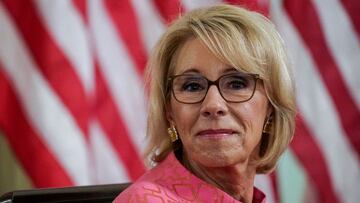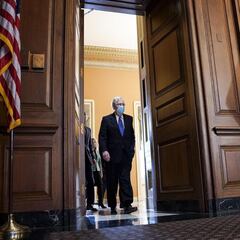New student loan extension: how many people will benefit and when is the deadline?
Betsy DeVos gave student loan borrowers and the incoming administration a little breathing room extending the pause on payments until the end of January.

With payments set to resume at the start of January Betsy DeVos, US Department of Education Secretary has extended the freeze on student loan payments and interest. Borrowers will have until 31 January to get their financial situation in order before payments restart. It also gives the incoming administration time to get settled in before figuring out how to handle the situation facing many borrowers in the face of the current economic circumstances.
The Secretary hit the pause button for 60 days in March with an executive order as it became clear that the covid-19 pandemic would push up unemployment. A week later Congress passed the CARES Act which extended the measure until the end of September. The current extension was put in place by President Trump with another executive order in August.
Betsy DeVos gives Congress time to act
On Friday the Trump administration granted an extra month of relief for the 42 million Americans who were facing having to restart payments just as the economic situation in the US is set to get worse again. The announcement also halts collection activity avoiding wages and Social Security checks being garnished. The Education Department had been being sending messages to borrowers to inform them that payments were set to begin on 1 January.
If you have student loans owned by the U.S. Department of Education, we’re happy to share that the administrative forbearance and 0% interest rate have been extended to Jan. 31, 2021, to provide relief during the COVID-19 emergency. Learn more: https://t.co/SgysdX2Ziv pic.twitter.com/WefjaMllgl
— Federal Student Aid (@FAFSA) December 4, 2020
In her statement DeVos made it clear that this matter needs to be address by Congress and should not be done through executive orders alone saying “The added time also allows Congress to do its job and determine what measures it believes are necessary and appropriate. The Congress, not the Executive Branch, is in charge of student loan policy.”
Congress has been deadlocked on any new relief for Americans since the spring when action was taken swiftly to stem the economic collapse brought on by the coronavirus pandemic. With a spending bill being hammered out to keep the government from a shutdown there is hope that some relief spending could be passed as well
What plans have been presented in Congress
A bipartisan group of centrist Senators put forth a $908 billion proposal to get some financial aid out the door before the year is out. Included in their plan is around $4 billion for student loan relief but the details of the proposal are still being worked out. However Mitch McConnell has expressed that he does not like the package being put forward preferring his own more focus approach.
Related stories
In Mitch McConnell’s own plan passed out to Republican colleagues and negotiated with the White House there is not any funding for student loans. Two of his Democratic colleagues in the Senate Elizabeth Warren and Chuck Schumer called on President-elect Joe Biden to cancel up to $50,000 of student debt on day one of his new administration in an op-ed published on Friday.
For millions of Black & brown people, student debt is now just another gigantic roadblock to building real wealth.
— Elizabeth Warren (@ewarren) December 5, 2020
With the stroke of a pen on day 1, the Biden-Harris administration can right this wrong.
Read my op-ed with @SenSchumer:https://t.co/myecdvbZoG
On the campaign trail Biden was favorable to the idea of cancelling some student debt but his proposal is more modest. He endorsed forgiving $10,000 worth of debt but has not said if he would do so through executive action. If he tries to get it through Congress he will have an uphill battle if the Republicans maintain their majority after the Georgia Senate race runoffs in January.


